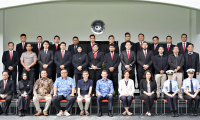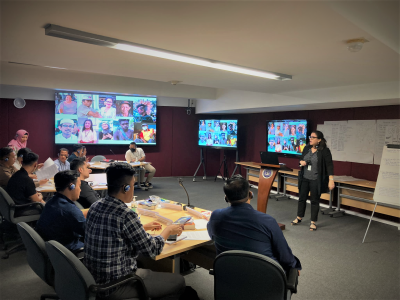Human rights training improving criminal investigations in Indonesia

My favourite part of the course was learning how to identify vulnerable persons in interviews [...] including being more open to people who come from Papua or people with autism.
Indonesia has a sizeable police force of 440,000 personnel working in over 4,500 local police stations, which is attempting to distance itself from its military past. However, traditional police interviewing practices that focus on accusatory, coercive and confession-driven techniques remain a problem within the Indonesian National Police (INP) and affect the ability to comply with fair due process procedures and rights enshrined in international, national law and INP regulations.
“The older generation of police are to some extent still influenced by the military mindset. But the younger generation are willing to learn about human rights and how to apply these standards in their criminal investigation work” (Police Adjunct Chief Commissioner (AKBP) Triatmo Hamardiyono, INP trainer)
In October the second of two training programmes for police officers took place. Introducing an integrated approach to rights-compliant interviewing, the programme uses the PEACE model as a practical tool and encourages officers to implement interviewing techniques that comply with human rights law and national police regulations through role play exercises.
“My favourite part of the course was learning how to identify vulnerable persons in interviews. There is not enough understanding on this in the police, including being more open to people who come from Papua or people with autism”, said Police First Inspector (IPTU) Marvel Ansanay, North Sumatra, who has been in the INP for eight years and is himself from Papua, an eastern region of Indonesia where indigenous people make up a majority of the population.
This was his reaction to a specific exercise on the training programme which took on ‘unconscious biases’ and their negative effects on the treatment of interviewees. This highlighted the importance of recognising - and respecting the rights of - persons in heightened situations of vulnerability.
“We support the participants to adopt an objective, fair and impartial interviewing process that protects the inherent dignity and human rights of the interviewee - whether they are suspect, victim or witness. In doing so, we hope police will gather more accurate and reliable information, thereby strengthening the quality of the evidence put forward as well as the professionalism of the overall investigation process”, explains Rachel Towers, Special Adviser on Access to Justice, who coordinates the training programme.

The training took place at the Jakarta Centre for Law Enforcement Cooperation (JCLEC) in Semarang, Central Java. It is a collaboration between the Danish Institute for Human Rights, the Danish Police and Komnas HAM (Indonesia’s national human rights institution), facilitated by Indonesian Police trainers.
